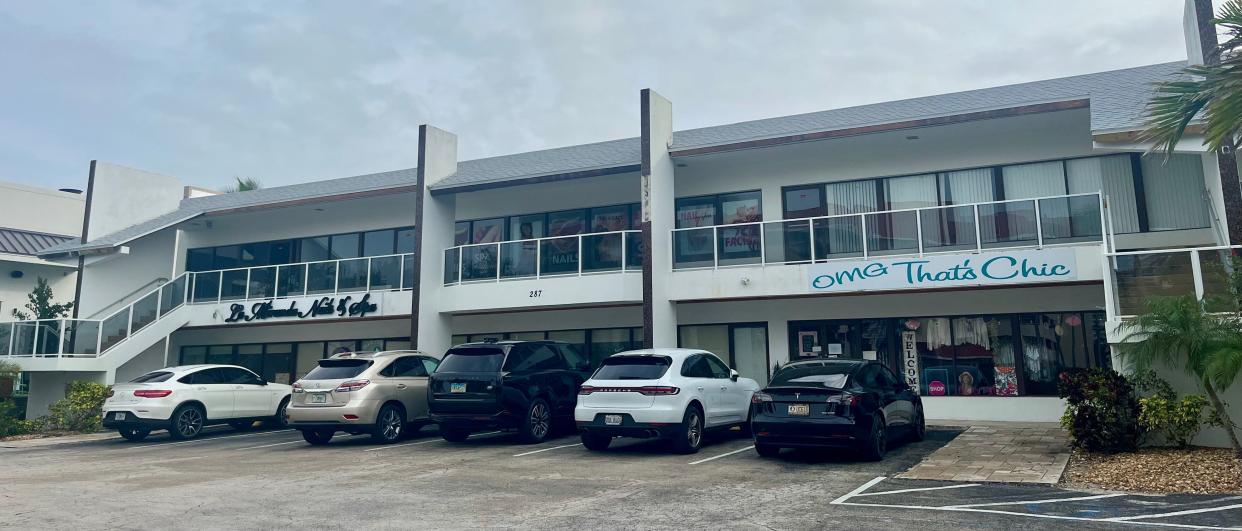Marco Island continues affordable housing discussion: What to know

A plan to help Marco Island businesses provide affordable housing to their employees will be heard by City Council members at their Feb. 20 meeting.
Marco Island Planning Board members asked city staff in January to make changes to the proposed ordinance and heard those updates on Feb. 2.
The Board, by a vote of 5-1, is recommending approval of a Land Development Code amendment to allow a process for owners of multi-story commercial buildings to remodel upper levels for workforce housing. Board member Geoff Fahringer was at the meeting but left for an appointment before the vote, said Chairman Jason Bailey.
The concept of affordable housing is a contentious topic that has some Marco Island residents complaining that more people will be on the island. Others are concerned about who might be living near them, questioning legal work status. Many employers say employees living on the island could mean less traffic, something else residents complain about.
"We’re walking on a razors edge," board member W. Mike Hogan said. "We’re pushing essential workers further north and further east. And that’s a business owners' cost of doing business, but we’re trying to give an opportunity here and I think it’s slim. We’re on a 4-by-6 lot of sand and it’s not getting any bigger."
Planning Manager Mary Holden presented the updated ordinance, which would add affordable housing as a conditional use under existing city code instead of creating a separate process just for affordable housing, which was the original proposal in January.
"We’re trying to provide an avenue for property owners to provide workforce housing where if they can’t tear down," Holden said. "It’s repurposing of the upper levels of commercial buildings. So, we’re trying to provide an avenue for folks to that."
Applicants must meet criteria, get approvals
Along with having to meet existing parking, building, fire, and floodplain regulations, applicants also will have to file a 30-year deed restriction, have a pre-application meeting with Growth Management staff, hold a Neighborhood Information Meeting and submit a conditional-use permit application.
Applications to remodel upper levels of commercial buildings to apartments must include a floor plan showing existing uses and a floor plan of the proposed layout of the workforce/affordable housing units and their square footage. Commercial use must be at least 50% of the project.The proposed adaptive reuse also must meet minimum square footage requirements of 450 square feet for efficiency and one-bedroom units; 650 square feet for two-bedroom units; 900 square feet for three-bedroom units.Maximum density of residential units developed cannot exceed eight units per acre for Village Commercial, or 12 units per acre for Community Commercial, Heavy Commercial or Town Center/Mixed Use.Vice Chair Nanette Rivera, who voted no, contended that the proposal doesn't have any rules.Not true, Holden and the other board members said.
"It doesn’t grant approval to anything," board member Hayden Dublois said. "It just creates a process that’s not much different than all the current mix uses. Is that correct?"
Yes, Holden said.
"I’m happy with how you guys have it," Bailey said.
Will it help?
Rivera questioned the need, the ability to prove that people living in the apartments are legal residents and meet affordable housing requirements and are "essential employees."
"People living on the second floor is the kitchen work, which does nothing for the front-line professionals that work in this community including nurses and teachers etc., etc." Rivera said.
Any proposed workforce/affordable housing units must meet the definition of affordable as provided in Florida Statutes, Holden said.
Under the state definition "affordable” means that monthly rents or monthly mortgage payments including taxes, insurance, and utilities do not exceed 30 percent of that amount which represents the percentage of the median adjusted gross annual income for the households.
Immigration or naturalization – "that’s up the employers to verify, so that is not an issue" and not something the city will consider, Holden said.
Board member Dave Vergo said he wasn't sure the plan would really help people with families who need homes.
"This is going to cater to the restaurant industry and things like that," he said. "Essential workers are more family oriented."
Holden disagreed.
"To me, a dishwasher is just as essential as a police officer," Holden said. "It (the ordinance) provides workforce housing to somebody who needs it."
Board member Nanette Finkle called for a vote and said, "this is making a very small dent in a very serious problem. And I want to thank the staff for doing exactly what we asked in bringing this forward."
Earlier: Marco Island planning board wants staff to revamp affordable housing plans
This article originally appeared on Naples Daily News: Marco Island Planning Board approves updated affordable housing plan

